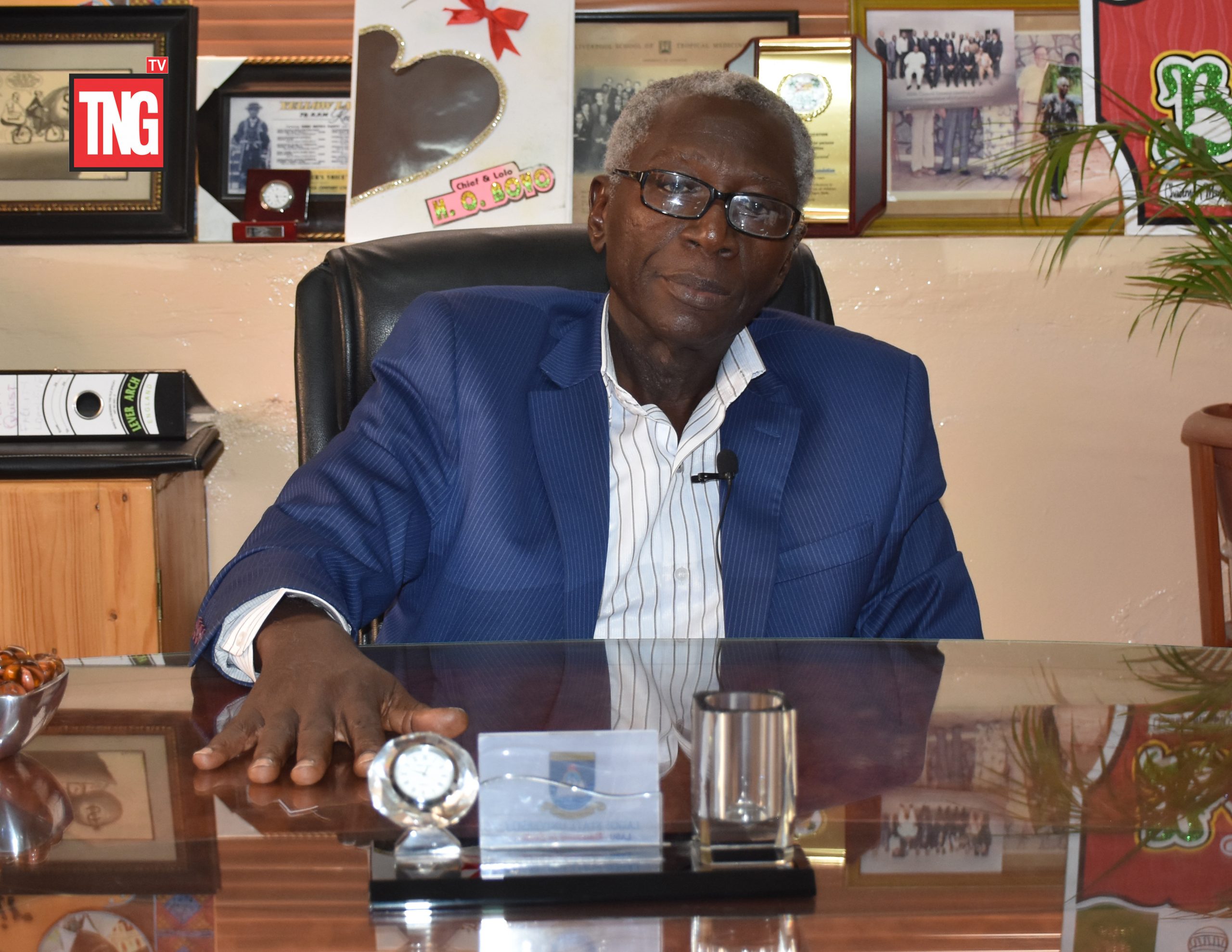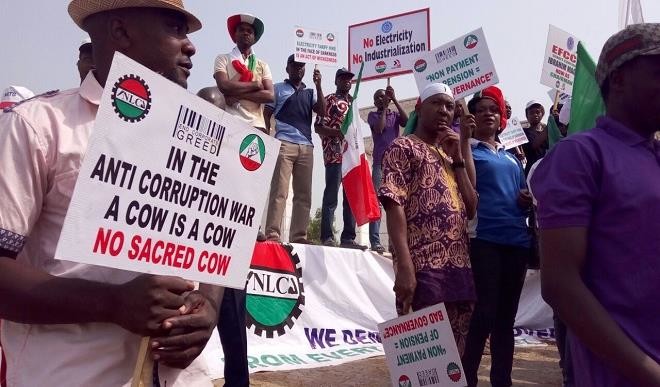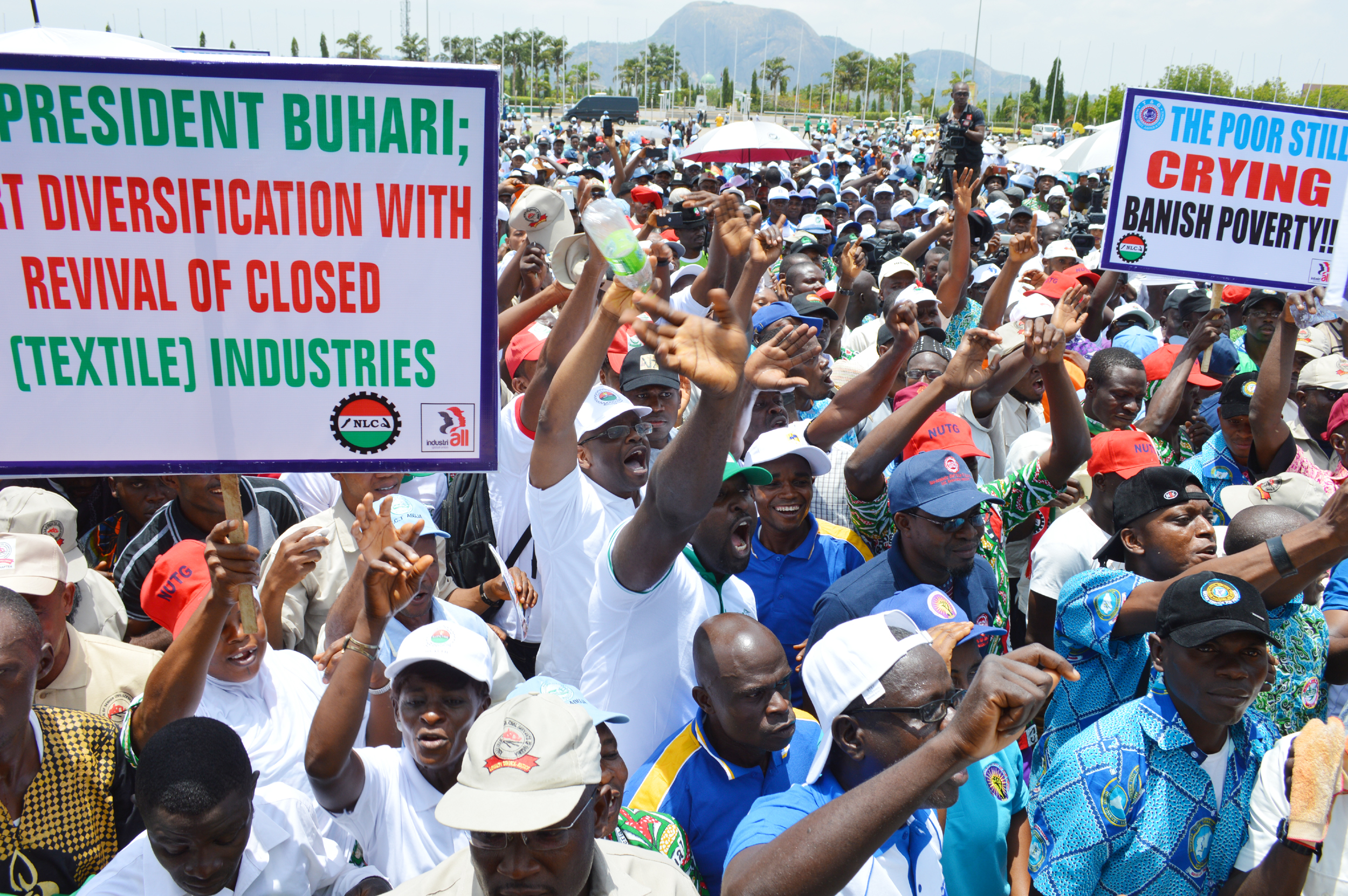It would be heartless to ignore organised Labour’s demand for upward review of the N18,000/month minimum wage, which was established in 2011, when this income was well over $100 i.e. above $3/day and well above the international poverty bench mark of less than $2/day.
Regrettably, as Naira crashed from N155 to the current N360=$1, the purchasing power of N18,000 minimum wage has, now sadly, dwindled to barely $50.00 i.e less than half its former value! Worse still, this value will further diminish, if annual inflation rates between 10-17%, since 2011, are also factored. It is undeniable therefore, that dependence on N18,000 monthly salary has since shunted millions of Nigerians down the poverty drain.
Invariably, the reduction in consumer demand, forcibly caused by the devastating crash in purchasing power of all incomes, simultaneously constrains optimal capacity utilization in factories and other commercial houses; ultimately, massive layoffs will become inevitable, with serious social and economic consequences, as indeed, presently amplified by the palpable level of insecurity, arguably, fuelled by the growing number of unemployed youths nationwide.
In reality, oppressive Naira devaluation and unyielding double digit inflation rates, will invariably compel, severe belt tightening in most Nigerian homes, especially where income levels rise, more slowly, than the rate of inflation. Arguably, the constant inability to successfully stretch depreciating incomes through each calendar month, may unfortunately, induce the temptation for workers to engage in corrupt enrichment. Sadly in such circumstances, an otherwise upright citizen may begin to rationalise any opportunity for corrupt enrichment, in their establishment, as ‘divine’ provision.
The preceding is not intended to justify any brazen act of corruption in offices and workplaces, but, the temptation to engage in corrupt practices, would probably be more courageously resisted, if the legitimate wages of workers, commanded values that could sustain some level of dignity in their lifestyles.
In retrospect we may recall that before government’s Structural Adjustment Programme in 1986, middle level administrative officers, including school teachers built their personal homes and funded (often with significant sacrifice) their children’s education, even up to tertiary level, from their legitimate salaries, and other income support from enterprising spouses.
Regrettably, it is presently impossible, for a Nigerian white collar executive, with an exceptionally handsome monthly salary package of N1m, to acquire a standard 3 bedroom apartment, from their legitimate salary, after making the usual tax deductions, and other existential commitments. Conversely, in successful economies everywhere, a street cleaner or driver has access to mortgage facilities to acquire their own homes.
Consequently, in view of the obvious social and economic significance of paying realistic living wages, it would be truly inconceivable, to challenge organized Labour’s increasing and pressing demand for an urgent significant upward review of the minimum wage to N56, 000/month, (i.e. approximately $150/month with N360=$1 exchange rate) so that the new minimum wage will exceed the $2/day international poverty benchmark.
Although, a monthly income of N56,000 may not provide any surplus, as savings, to acquire a car, let alone a house, nonetheless, the expectation that N56k would triple the present spending capacity of workers and adequately fund several pressing domestic and other existential needs, may regrettably not materialize.
Nonetheless, on Thursday, 12 October 2017, members of the House of Representatives also noted that no Nigerian worker could survive on a monthly wage of N18,000, and therefore urged the Federal Government to consider N30,000 as the new national minimum wage, in order to avert industrial actions by workers.
However, TUC President, Bobboi Kagama has rejected a minimum wage of N30,000, while NLC General Secretary, Peter Ezon, however, indicated that a tripartite engagement involving Labour, the Private Sector and the Government may have started to consultations to determine an approved minimum wage.
Meanwhile, President Buhari, has however lately also expressed heartfelt concern on how state Governors can sleep when workers salaries remain unpaid for several months.
The following is a summary of a piece titled “N56, 000 minimum wage or a stronger Naira?”(This article was first published on 2nd May 2016); please read on:
“Nigeria Labour Congress (NLC) president, Comrade Ayuba Wabba told a news conference last week (April 27, 2016), in Abuja, that even though it is true that the economy is not doing well, but the law states that wages for workers must be reviewed after every five years”. Notably, however, any significant wage increase will regrettably, certainly, cripple the economies of several states, as salary bills will become tripled and worsen, the already, heavily lopsided recurrent government budgets, and erase any hope of infrastructural development; invariably, the already worrisome present debt burden in several states will also increase. Similarly, the rate of unemployment will worsen, as several SME operators may not survive the challenge of paying a N56,000 minimum wage.
Unexpectedly however, the joy of a N56, 000 minimum wage will be quickly threatened by a rise in the general price level, and inflation may rapidly spiral above 20% from the current, volatile springboard of 15.6%.
Expectedly, spiraling inflation, will significantly reduce consumer spending, and discourage domestic production and ultimately fuel an already combustible unemployment rate, with unsavory and horrendous social and economic consequences. Unfortunately, the very high cost of borrowing, aggressively instigated by the albatross of surplus Naira supply and spiraling inflation, will, ultimately, also restrain the productive sector’s capacity to create jobs and produce competitively priced/quality goods for export.
Instructively, reprieve from this cyclical bondage may however come, only if inflation is tamed to best practice rates below 3%; unfortunately, the significant increase in money supply, which will inevitably be triggered by a 300% rise in workers’ wages, across all levels, would however, make such a progressive goal, in monetary management impossible to achieve.
Furthermore, continous increase in money supply would also compel CBN to quickly step up its compulsive, counterproductive, high interest borrowings with T/bill auctions, to reduce the perceived, systemic excess Naira values and restrain spiraling inflation. Ironically, such CBN interventions would in turn propel higher borrowing rates and crowd out the productive sector from ready access to the cheaper funds, required to expand domestic production and create jobs, even when, ironically, the funds mopped up, despite the oppressive cost of borrowing, will simply remain sterilized from any practical use in CBN vaults!
Consequently, if higher inflation rates fuelled by persistent and increasingly excess money supply remains untamed, government would need to carefully examine how successful economies everywhere, sensibly and sensitively manage money supply, so that, systemic excess money, does not become problematic to push inflation beyond, say 3%, so that cost of borrowing will also remain well below 10%. Instructively, in economies where socially sensitive monetary management is practiced, commercial banks, conversely, pay a penalty fee to their respective Central Banks to warehouse any stock of surplus funds.
Nonetheless, the question is what is the origin of the ever present poison of excess money supply?
Instructively, as evidently recognized in the “Monetary Policy Thrust Statement” of Government’s Vision 2020, CBN does not deny that the monetization of distributable dollar revenue (read as unilateral substitution of Naira for dollar denominated revenue) is actually the primary cause of, persistently excess Naira supply, which triggers disenabling, and counterproductive monetary indices, such as, unusually high inflation and interest rates and a weaker Naira.
Instructively, astute, best practice management of money supply, particularly in the forex market, will gradually strengthen and sustain Naira below N100=$1. In such event, the present N18, 000 minimum wage, without much ado, would then command the current dollar equivalent of almost $200, without the usually abrasive negotiations for wage increases. Fortunately, excess Naira liquidity will become better managed when CBN breaks its stranglehold monopoly in the forex market and ceases to auction the dollar for higher Naira bids.
SAVE THE NAIRA, SAVE NIGERIANS!


